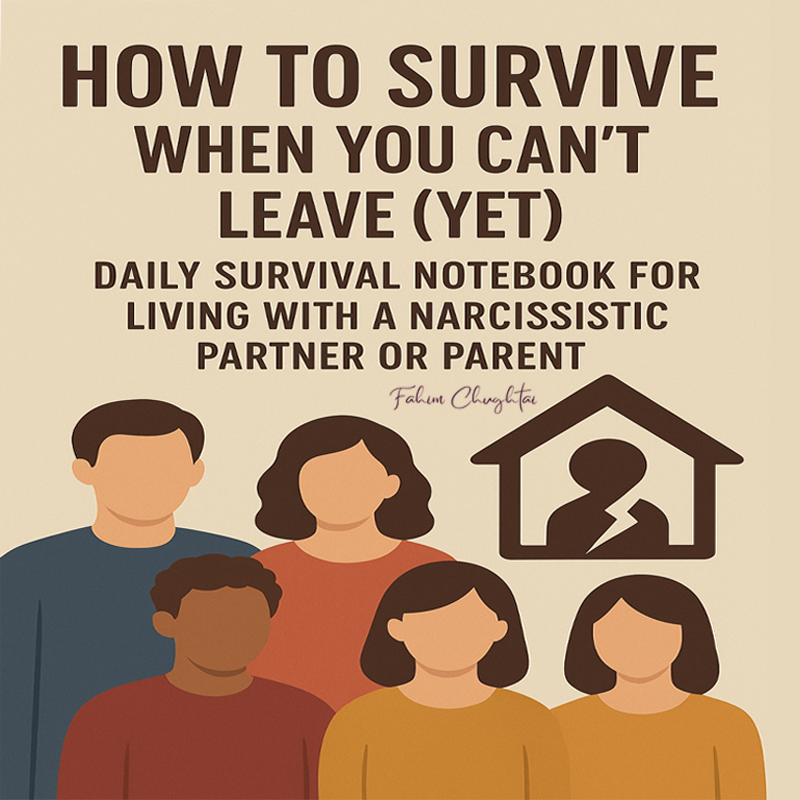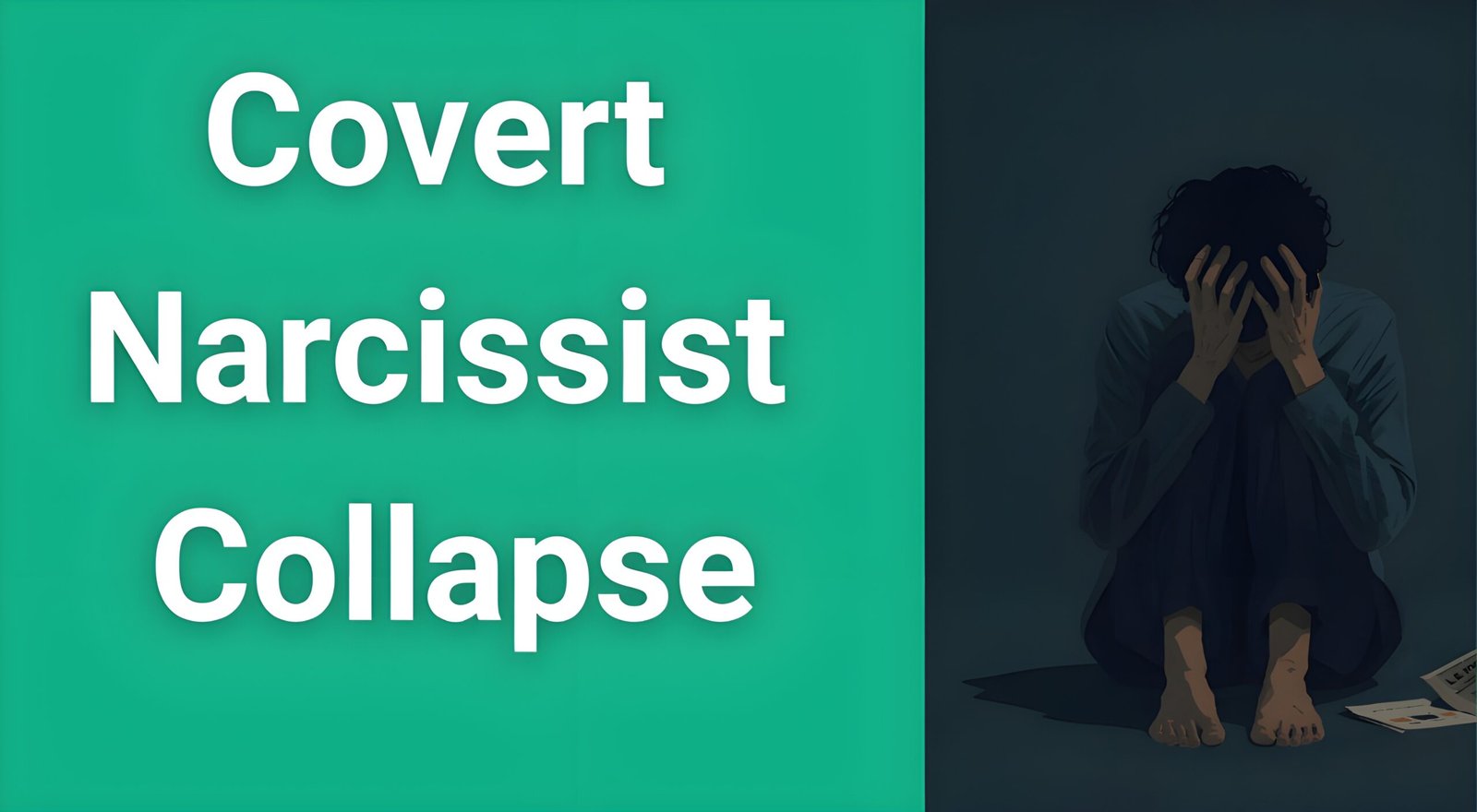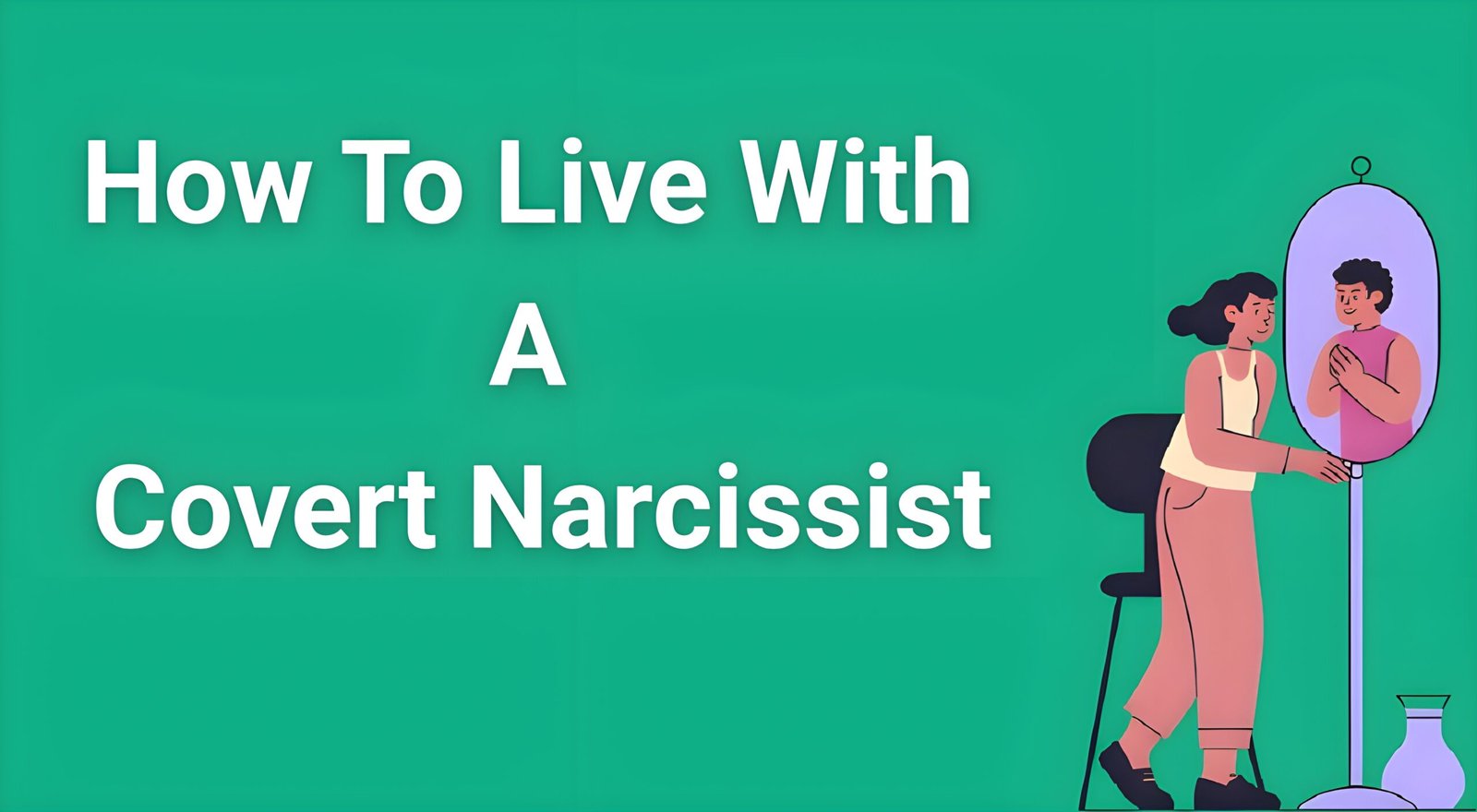Have you ever watched someone who seemed quietly confident suddenly unravel when criticized? That moment when their carefully constructed facade crumbles, revealing raw vulnerability beneath? This psychological breakdown is what experts call a covert narcissist collapse – and understanding it could be the key to protecting your mental health and relationships.
- What Is Covert Narcissist Collapse?
- The 12 Critical Warning Signs of Covert Narcissist Collapse
- Common Triggers of Covert Narcissist Collapse
- The Impact on Relationships and Family Dynamics
- How to Protect Yourself During Someone’s Collapse
- When Professional Intervention Becomes Necessary
- Finding Your Path to Freedom and Healing
- Creating a Safety Plan for Yourself
- The Science of Recovery: Why Understanding Matters
- Frequently Asked Questions
- Moving Forward: Your Life Beyond Their Collapse
Unlike the explosive outbursts of overt narcissists, covert narcissist collapse happens quietly, insidiously, often leaving those around them confused and emotionally drained. The person who once seemed so put-together suddenly becomes unpredictable, manipulative, or completely withdrawn. If you’re questioning whether someone in your life is experiencing this breakdown, you’re not alone – and recognizing the signs early can save you years of confusion and pain.
What Is Covert Narcissist Collapse?
Covert narcissist collapse occurs when a vulnerable narcissist’s carefully maintained self-image crumbles under pressure. Unlike grandiose narcissists who collapse dramatically with rage outbursts, covert narcissists implode internally, creating a different but equally destructive pattern of behavior.
This psychological breakdown happens when their primary coping mechanisms fail. The quiet superiority, subtle manipulation, and victim-playing that usually protect their fragile ego suddenly stop working. What emerges is raw emotional instability that can manifest as depression, anxiety, passive-aggressive behavior, or complete social withdrawal.
Am I Dealing With a Covert Narcissist — or Just Toxic Behavior?
The collapse represents a fundamental crack in their identity. For years, they’ve maintained a delicate balance between feeling superior and desperately needing validation. When that balance tips, the result is a psychological crisis that affects everyone in their orbit.
The Neuroscience Behind the Breakdown
Research reveals that individuals with narcissistic traits have weakened frontostriatal connectivity in their brains, making them particularly vulnerable to emotional instability. During collapse, this neurological weakness becomes pronounced, leading to impaired decision-making and emotional regulation.
Without their usual external validation, covert narcissists face an internal void they’ve spent years avoiding. This confrontation with their authentic self – often filled with shame, inadequacy, and fear – triggers the collapse response.
The 12 Critical Warning Signs of Covert Narcissist Collapse
Understanding these signs can help you identify when someone is experiencing a breakdown and protect yourself from the emotional fallout.
1. Extreme Withdrawal and Isolation
The first sign of covert narcissist collapse is often dramatic social withdrawal. They suddenly cancel plans, avoid phone calls, and retreat from relationships that once provided validation. This isn’t simple introversion – it’s self-protective isolation driven by overwhelming shame.
You might notice them declining invitations they would have previously accepted, especially if those events involve potential criticism or comparison to others. They may claim illness, work stress, or family issues to avoid social situations where their vulnerabilities might be exposed.
2. Obsessive Self-Criticism and Rumination
During collapse, covert narcissists become trapped in cycles of self-blame and analysis. They replay perceived failures endlessly, dissecting every interaction for signs of rejection or criticism. This obsessive thinking pattern can last for hours or days, consuming their mental energy.
Unlike healthy self-reflection, this rumination serves no productive purpose. They’re not learning from mistakes – they’re torturing themselves with them, reinforcing their sense of inadequacy while simultaneously maintaining their victim identity.
3. Heightened Sensitivity to Criticism
An already sensitive person becomes hypersensitive during collapse. Minor feedback feels like devastating attacks on their character. A gentle suggestion from a partner or colleague can trigger disproportionate emotional responses, from hours of silent treatment to emotional outbursts about being “misunderstood.”
This sensitivity extends to perceived criticism that doesn’t even exist. They read negative intent into neutral comments, creating conflicts where none existed and pushing away the very people who might offer support.
4. Passive-Aggressive Behavior Escalation
As direct confrontation feels too threatening during collapse, covert narcissists amplify their passive-aggressive tendencies. They might “forget” important commitments, give backhanded compliments, or use silent treatment as punishment for perceived slights.
This behavior becomes more frequent and intense during collapse. Tasks get “accidentally” delayed, important information gets withheld, and they create subtle chaos in relationships while maintaining plausible deniability about their intentions.
5. Desperate Attention-Seeking Through Crisis
Paradoxically, while withdrawing from some relationships, they may create or amplify crises to regain attention and sympathy. These might include health scares, family emergencies, or professional disasters that seem to require immediate support and validation.
The timing of these crises often coincides with moments when attention has shifted away from them or when they’ve experienced rejection or criticism. The emergencies serve to redirect focus back to them while reinforcing their victim narrative.
6. Emotional Volatility and Mood Swings
Normally controlled emotions become unpredictable during collapse. They might cry unexpectedly, have anxiety attacks, or display uncharacteristic anger. These emotional swings often seem disproportionate to the triggering event, leaving others confused about what’s really happening.
The volatility stems from their inability to regulate emotions without external validation. When their usual coping mechanisms fail, they’re left with raw, unprocessed feelings they don’t know how to manage independently.
7. Projection and Blame-Shifting Intensifies
During collapse, taking responsibility becomes even more threatening than usual. They project their inadequacies onto others with increased intensity, blaming family members, colleagues, or friends for their emotional state and life circumstances.
This projection serves a dual purpose: it deflects attention from their own failings while positioning them as the innocent victim of others’ actions. The blame becomes more creative and far-reaching during collapse, sometimes targeting people who have minimal involvement in their lives.
8. Self-Destructive Behaviors Emerge
The internal pain of collapse can manifest as self-sabotage. They might quit jobs impulsively, end important relationships, engage in financial recklessness, or develop substance abuse issues. These behaviors provide temporary relief from emotional pain while creating new crises that require attention.
Self-destructive acts also serve as indirect aggression toward those who’ve “caused” their collapse, forcing others to deal with the consequences of their choices while maintaining their victim status.
9. Memory Distortion and Gaslighting
During collapse, their already flexible relationship with truth becomes even more distorted. They rewrite history to support their victim narrative, genuinely believing revised versions of events that paint them in a more sympathetic light.
This isn’t necessarily conscious lying – their emotional state genuinely alters their memory of events. However, when others challenge these revised memories, they double down with gaslighting techniques, insisting their version is correct and others are confused or lying.
10. Increased Manipulation and Control Attempts
Feeling powerless during collapse, they may escalate manipulative behaviors to regain control. This might include emotional blackmail, guilt-tripping, playing family members against each other, or using children or shared responsibilities as leverage.
The manipulation becomes more desperate and obvious during collapse, often backfiring and pushing people away. However, they continue these patterns because they provide temporary feelings of power and control.
11. Physical Symptoms and Health Complaints
The stress of collapse often manifests physically through headaches, digestive issues, sleep problems, or unexplained aches and pains. These symptoms can be both real and psychosomatic, stemming from the intense emotional turmoil they’re experiencing.
Health complaints also provide another avenue for attention and sympathy, allowing them to focus on physical rather than emotional pain. Medical appointments and treatments can become consuming, providing structure and validation when other sources have dried up.
12. Suicidal Ideation or Threats
In severe cases, collapse can include thoughts of self-harm or suicide. These may be genuine cries for help or manipulative attempts to regain control and attention. Regardless of intent, any mention of self-harm should be taken seriously and addressed immediately.
The desperation underlying these threats reflects the depth of their psychological crisis. Without their usual defenses, they may feel genuinely hopeless about their ability to maintain relationships and self-worth.
Common Triggers of Covert Narcissist Collapse
Understanding what precipitates collapse can help you recognize patterns and protect yourself from the emotional fallout.
Public Embarrassment or Exposure
Even minor public criticism can trigger collapse in covert narcissists. Being corrected in a meeting, having a mistake pointed out in front of others, or failing at something publicly can shatter their carefully maintained image of competence.
The key factor isn’t the severity of the criticism but its public nature. Private feedback might be manageable, but anything that threatens their image in front of others can be devastating.
Loss of Primary Validation Source
When their main source of admiration disappears – through job loss, relationship ending, children leaving home, or death of a family member – the resulting validation vacuum can trigger immediate collapse.
This is particularly dangerous because covert narcissists often put all their emotional eggs in one basket, depending heavily on one person or situation for their sense of worth. When that source disappears, they have no backup systems in place.
Significant Life Transitions
Major life changes that require authentic self-reflection or adaptation can overwhelm covert narcissists. Retirement, empty nest syndrome, divorce, or major health issues force them to confront realities about themselves they’ve avoided.
These transitions often involve identity shifts that threaten their carefully constructed self-image. The uncertainty and vulnerability required for healthy adaptation feels impossible when your sense of self is built on maintaining superiority and control.
Comparison to Others’ Success
Witnessing others achieve recognition, promotions, or life milestones can trigger intense envy and subsequent collapse. This is especially true when the successful person is someone they consider inferior or when the achievement is in an area where they expected to excel.
The comparison highlights the gap between their grandiose self-image and reality, creating cognitive dissonance that can precipitate breakdown.
The Impact on Relationships and Family Dynamics
Covert narcissist collapse doesn’t happen in isolation – it creates ripple effects that damage relationships and family systems for years.
Emotional Trauma for Partners and Children
Family members often bear the brunt of collapse-related behaviors. Children may develop anxiety, depression, or codependent patterns from trying to manage an unpredictable parent. Partners frequently experience emotional whiplash from the dramatic shifts in behavior and increased demands for support.
The subtle nature of covert narcissist manipulation makes it particularly damaging because victims often can’t clearly identify what’s happening. They know something feels wrong but struggle to articulate the problem, leading to self-doubt and confusion.
Professional and Social Consequences
Workplace relationships suffer as colleagues deal with increased passive-aggression, unreliability, and emotional volatility. The covert narcissist may sabotage team projects, spread gossip, or create unnecessary drama that affects entire departments.
Social circles often fracture as friends become exhausted by the emotional demands and manipulation. The person in collapse may burn bridges with accusations, demands for support, or dramatic exits from social groups.
Long-term Recovery Challenges
Without professional intervention, covert narcissist collapse can become a recurring pattern. Each breakdown reinforces their victim identity and provides temporary relief from responsibility, making future collapses more likely.
The damage to relationships during collapse can be permanent, as trust is broken and emotional resources are depleted. Even if the person eventually stabilizes, the relationship dynamics may never fully recover.
How to Protect Yourself During Someone’s Collapse
If you’re dealing with someone experiencing covert narcissist collapse, protecting your mental health must be your priority.
Establish Firm Boundaries
Create clear limits about what behaviors you will and won’t tolerate. This might mean refusing to engage in circular arguments, limiting contact during episodes, or declining to rescue them from self-created crises.
Boundaries must be consistent and enforced despite guilt-tripping or emotional manipulation. Remember that boundaries aren’t meant to punish them – they’re meant to protect your own well-being.
Avoid Taking Responsibility for Their Emotions
Resist the urge to fix, save, or manage their emotional state. Their collapse isn’t your fault, and you can’t cure it through love, patience, or better behavior. Taking responsibility for their emotions only enables the dysfunction and exhausts your resources.
This is particularly challenging for empathetic people who naturally want to help someone in distress. However, genuine help means encouraging professional treatment, not becoming their emotional crutch.
Document Concerning Behaviors
Keep a record of manipulative behaviors, threats, or concerning statements. This documentation can be crucial if you need to involve mental health professionals, law enforcement, or legal professionals in the future.
Documentation also helps you maintain perspective when they attempt to gaslight or revise history. Having concrete records of events prevents you from doubting your own perceptions.
Seek Professional Support
Working with a therapist who understands narcissistic abuse can help you process your experiences and develop healthy coping strategies. Support groups for people affected by narcissistic abuse can also provide validation and practical advice.
Professional support is essential because dealing with someone in narcissistic collapse can trigger trauma responses, depression, and anxiety in those around them. You deserve support and guidance as you navigate these challenging dynamics.
When Professional Intervention Becomes Necessary
Some situations require immediate professional help to ensure everyone’s safety and well-being.
Threats of Self-Harm or Suicide
Any mention of self-harm should be taken seriously, regardless of whether you believe it’s manipulative. Contact mental health crisis services, call emergency services, or take them to an emergency room for evaluation.
Don’t attempt to assess the “genuineness” of threats yourself. Leave that determination to trained professionals who can properly evaluate risk and provide appropriate interventions.
Escalating Aggression or Violence
If passive-aggression escalates to verbal threats or physical aggression, prioritize safety over salvaging the relationship. This might mean removing yourself and dependents from the situation, involving law enforcement, or seeking restraining orders.
Covert narcissists may escalate to overt aggression during severe collapse when their usual subtle methods fail to regain control. Don’t assume that past non-violent behavior guarantees future safety.
Severe Impact on Children or Dependents
If children or elderly dependents are being emotionally abused or neglected due to the person’s collapse, intervention becomes urgent. Contact child protective services, adult protective services, or family court systems as appropriate.
Children are particularly vulnerable to long-term psychological damage from living with someone in ongoing narcissistic collapse. Their needs for stability and emotional safety must take priority over maintaining family unity.
Finding Your Path to Freedom and Healing
Recovery from the trauma of dealing with covert narcissist collapse is possible, but it requires intentional effort and often professional support.
Understanding Trauma Bonds
Many people find themselves unable to leave relationships with collapsing narcissists due to trauma bonds – psychological attachments that form through cycles of abuse and intermittent reinforcement. These bonds can feel stronger than love, making it seem impossible to walk away even when you know the relationship is harmful.
If you find yourself constantly checking their social media, making excuses for their behavior, or feeling like you can’t function without them despite their treatment of you, you may be experiencing a trauma bond. This isn’t weakness – it’s a neurological response to psychological manipulation that requires specific strategies to overcome.
For those struggling with these intense psychological attachments, the 30 Day Trauma Bond Recovery Workbook provides a science-based system for breaking free from these addictive relationship patterns. Unlike willpower-based approaches that often fail, this structured program addresses the neurological aspects of trauma bonding through daily exercises designed to rewire your brain’s response patterns.
Recognizing When You Need Clarity
Sometimes the hardest part of dealing with someone’s collapse is understanding whether what you’re experiencing actually constitutes abuse. Covert narcissists are masters of making you question your own perceptions, leaving you wondering if you’re “too sensitive” or “overreacting” to their behavior.
If you find yourself constantly walking on eggshells, apologizing for things that aren’t your fault, or feeling crazy after interactions with them, you may benefit from professional analysis of your situation. Getting clarity about what you’re really dealing with can be the first step toward protecting yourself and making informed decisions about your relationships.
The Narcissistic Abuse Clarity Report offers personalized analysis from specialists who understand the subtle dynamics of covert narcissistic relationships. This confidential assessment can help you understand exactly what you’re experiencing and provide specific strategies for your unique situation.
Building Your Support Network
Recovery requires connection with people who understand what you’ve been through. This might include therapy, support groups, trusted friends, or online communities of survivors. Isolation is one of the most damaging effects of narcissistic relationships, and rebuilding social connections is crucial for healing.
Look for relationships where you feel heard, validated, and free to express your authentic feelings without judgment. Avoid people who minimize your experiences or pressure you to “just get over it” or reconcile with the abusive person.
Still Living With Them? You’re Not Helpless.

Developing Long-term Protection Strategies
Once you understand the patterns of narcissistic collapse, you can develop strategies to protect yourself in future relationships. This includes learning to recognize red flags early, trusting your instincts, and maintaining strong boundaries even when you care about someone.
Understanding narcissistic dynamics doesn’t mean becoming suspicious of everyone, but it does mean developing the skills to identify unhealthy patterns before they become entrenched. This knowledge becomes particularly important in family situations where you can’t completely eliminate contact.
Creating a Safety Plan for Yourself
If you can’t immediately leave a relationship with someone experiencing narcissistic collapse, creating a safety plan becomes essential for protecting your mental health and physical safety.
Financial Independence and Security
Ensure you have access to your own financial resources and important documents. This might mean opening a separate bank account, keeping important papers in a safe location, or building an emergency fund that the narcissist can’t access.
You’ve Seen the Patterns. Now Break the Bond.
Financial abuse often intensifies during narcissistic collapse as they attempt to regain control through economic manipulation. Having financial independence gives you options and reduces their ability to trap you in the relationship.
Emergency Contact Network
Identify trusted friends, family members, or professionals you can contact during crisis situations. Make sure these people understand your situation and are prepared to provide support when needed.
This network should include people the narcissist doesn’t have access to or influence over. Consider including a therapist, domestic violence advocate, or other professional who can provide objective guidance during intense situations.
Documentation and Evidence
Keep records of abusive incidents, threatening messages, or concerning behaviors. Store these records in a location the narcissist can’t access, such as a trusted friend’s house, safety deposit box, or secure online storage.
This documentation can be crucial for restraining orders, custody cases, or other legal proceedings. It also helps you maintain perspective when the narcissist attempts to rewrite history or gaslight you about past events.
The Science of Recovery: Why Understanding Matters
Knowledge about narcissistic collapse isn’t just academic – it’s protective. Understanding the psychological mechanisms behind these behaviors helps you respond from logic rather than emotion, reducing your likelihood of being manipulated or traumatized.
Breaking the Confusion Cycle
Covert narcissists thrive on keeping others confused and off-balance. When you understand that their behaviors follow predictable patterns, you regain a sense of control and clarity that’s essential for making healthy decisions.
This understanding helps you recognize that their collapse isn’t your fault, their recovery isn’t your responsibility, and their emotions aren’t your emergency. These realizations are crucial for maintaining your own mental health while dealing with their crisis.
Preventing Future Victimization
Education about narcissistic dynamics protects you from future manipulation by similar individuals. Once you understand the tactics, you’re less likely to be fooled by love-bombing, victim-playing, or other manipulative strategies that covert narcissists use to establish control.
This knowledge also helps you support others who might be experiencing similar situations, potentially preventing them from years of confusion and psychological damage.
Frequently Asked Questions
Q: How long does covert narcissist collapse typically last?
A: Collapse duration varies widely, from days to years, depending on triggers, support systems, and whether they receive professional treatment. Without intervention, patterns often repeat cyclically.
Q: Can covert narcissists recover from collapse without professional help?
A: While they may stabilize temporarily, true recovery typically requires professional intervention addressing underlying personality patterns and trauma that drive narcissistic behaviors.
Q: Is it safe to confront someone during narcissistic collapse?
A: Direct confrontation during collapse often escalates the situation. Focus on protecting yourself rather than trying to reason with someone in psychological crisis.
Q: How can I tell if someone’s collapse is genuine distress or manipulation
? A: Both can be true simultaneously. Genuine distress doesn’t excuse manipulative behavior. Focus on protecting yourself regardless of their internal experience.
Q: Will they remember their behavior after the collapse ends?
A: Memory of collapse behaviors is often selective or distorted. They may genuinely not remember certain actions or may revise their memories to maintain their self-image.
Moving Forward: Your Life Beyond Their Collapse
Dealing with someone’s covert narcissist collapse can be one of the most challenging experiences you’ll face, but it doesn’t have to define your future. Understanding these patterns gives you the power to make informed decisions about your relationships and protect your mental health.
Remember that you can’t save someone from their own psychological collapse, but you can save yourself from being destroyed in the process. Your wellbeing matters, your perceptions are valid, and you deserve relationships built on mutual respect and genuine care.
The journey of recovery from narcissistic abuse is challenging but possible. With the right support, education, and tools, you can break free from the confusion and pain of these relationships and build a life characterized by authentic connection, peace, and emotional freedom.
If you’re ready to take the first step toward clarity and healing, remember that professional support is available. Whether you need help understanding your situation, breaking trauma bonds, or creating a safety plan, resources exist to guide you through this difficult but ultimately liberating process.
Your freedom and peace of mind are worth fighting for. The collapse of their facade doesn’t have to mean the collapse of your wellbeing – it can be the beginning of your liberation.






